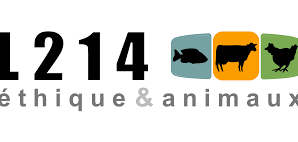
"Good for your face" - Here are the words used by an employee of the breeding.
L214 today reveals the scandalous behavior of employees towards young calves raised to end up in the butcher's department. The images come from the breeding of the research and innovation center of the Denkavit company (Maine-et-Loire), number 2 for veal in France.
In this centre, Denkavit carries out studies on animal nutrition, housing and… well-being. A peak!
Our footage shows calves being abused by employees. They use force and blows to make them move forward: kicks, punches, sticks, projection… all accompanied by insults.
These outrageous acts are inexcusable. The L214 association is asking the prefect of Maine-et-Loire for an emergency veterinary inspection and the application of immediate sanctions against the Denkavit company.
L214 filed a complaint for mistreatment and serious abuse with the public prosecutor of the Saumur judicial court.
Separated from their mother, locked up and often sick
The 300 calves confined in the 3 buildings of this establishment come from dairy farms. These very young animals arrive within 2 weeks of birth. They remain locked in tiny individual cages on the concrete floor, devoid of litter, without water available. They are fed and watered twice a day, until they are 8 weeks old. They are then placed in groups, but still locked in these buildings, without access to the outside. Their only outing takes place around the age of 6 months. To be taken to the slaughterhouse.
Some calves are affected by respiratory and digestive pathologies. Fever, runny nose, diarrhea or cough are commonplace. Some also suffer from otitis or meningitis.
To combat these pathologies linked to confinement and their fragility, these very young animals receive a lot of antibiotics: 7 antibiotics were noted on the spot by the whistleblower. 3 belong to families classified by the WHO as a major priority in the context of surveillance of antibiotic resistance.
In France, 91% of calves for slaughter are in this type of breeding. This system seeks productivity at all costs, without considering the sensitivity of the animals, which increases the risk of drifting into violent behavior.
The images must be seen to make it clear that our system must change. Share them as much as possible!
Posted on 2022-04-20 10:47








Comments